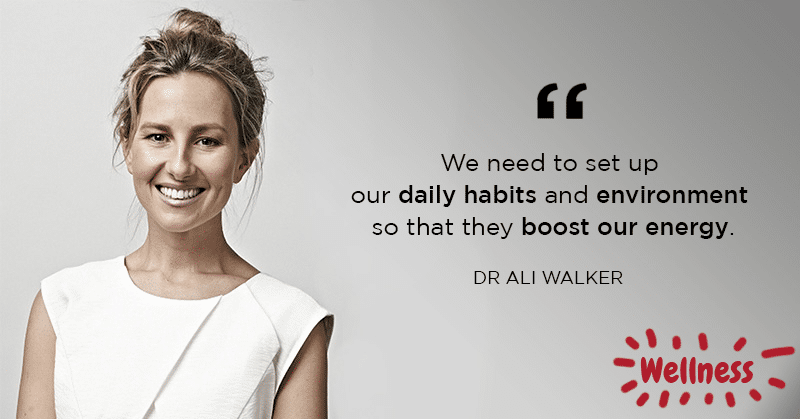How to stay productive and positive in these tumultuous times | Dr Ali Walker | Wellbeing

At ICMI we are fortunate to have Australia’s best business thinkers in our stable. Our speakers are experts in change management, dealing with disruption and guiding businesses through uncharted waters.
The current health crisis presents several challenges in both protecting our staff’s health today, and protecting their wellbeing tomorrow as realities set in. With this in mind, we’ve asked our speakers to share their insights on how businesses can ride the shockwave and minimise the impact.
About the Author
Dr Ali Walker PhD is a speaker for ICMI on human connection, culture and leadership. Ali is a social scientist at the Centre for Social Impact, UNSW Sydney and the founder of Ality Life personality assessments. She is the bestselling author of Get Conscious: How to stop overthinking and come alive. Ali presented at TEDxUNSW on the topic ‘How to read and lead the room,’ and her talk was selected by TED.com to be featured on their website.
How to stay productive and positive in these tumultuous times
This pandemic is outside the rule book and has turned our environment upside down. It’s like we went to sleep in our normal lives and woke up in the jungle. All of the structures and positive habits we took for granted (as individuals and as organisations) are no longer applicable and the ground is moving beneath us.
We’re all naturally feeling disorientated and we’re in fight or flight. At the same time, many of our coping mechanisms (seeing friends and family, going out, going to the gym) have been taken away.
Here’s the key: this background mental load is making it harder for us all to focus, and get things done. If you imagine that we all have $100 of psychological energy each day, this pandemic is already taking up $25-50. The remaining money has to be spent wisely.
So how do we stay positive and productive in a time like this? We need to set up our daily habits and environment so that they boost our energy.
Here are 5 evidence-informed suggestions:
- Acknowledge that constantly checking the news and social media for updates is not the best for our mental health. Set times to catch up: ‘I’ll watch the news at x’, or ‘I’ll check my phone at y.’ Turn your phone off at night.
- Create (and stick to) a morning routine. This starts the night before. Go to bed at the same time and wake up at the same time. Wake up and make your bed. Have a shower and get dressed. Eat breakfast. Even though a lot has changed, your morning routine doesn’t have to.
- Schedule your day. Set a time for every important task. Ask yourself, ‘how would I feel if this was finished at the end of today?’ This creates a signal to our brain that we are going to finish it. Plan your meals in the morning. Plan a time for movement/exercise in the morning. Be intentional about how the day is going to go. The more we remove small decisions from our day, the more energy we have.
- Run these positive thoughts through your mind whenever you’re low on energy: We’re not on our own. There are creative, intelligent, passionate professionals working around the clock to help us get through this. There will be an end to this, sooner than we think. Each night, write down 3 things that went well. This has been shown by Martin Seligman, the creator of positive psychology, to make us happier and more positive.
- Be kind and honest to the people around you. Focusing on others boosts our mood and makes us feel better. The more we name and communicate our feelings, the easier it is to move past them. Even if you don’t have the answers, reassure people by saying, ‘I’ll let you know as soon as I know,’ and keep them secure with daily updates. Ask staff, ‘How are you going and what do you need?’ Even if you can’t provide it, the connection will make them feel better.
Once this is all over, imagine being proud of how you handled it and what you created. Imagine having so much momentum when we emerge from this that you are the one able to turn threats and change into opportunities.
This is outside the rule book, so it’s time we write our own.